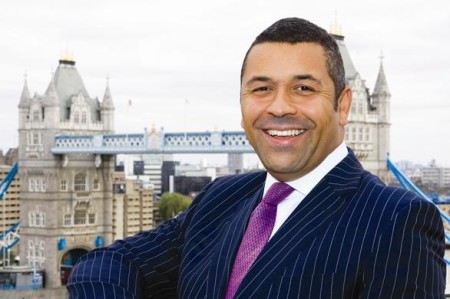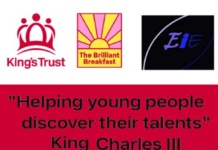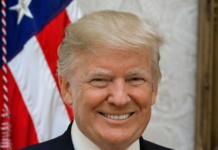European Union is responsible for underdevelopment in Africa by using taxpayers money to undercut African farmers, leaving them unable to compete and produce food, according to James Cleverly, a Member of Parliament.

James Cleverly, a Eurosceptic Tory MP who worked with Mr Boris Johnson Mayor of London said, “the Common Agricultural Policy subsidizes continental European farmers to produce food in quantities that we cannot eat, while addressing a packed audience of Vote Leave supporters at the City Hall on 27th April.
Mr Cleverly, whose mother is from Sierra Leone said, “these heavily subsidised surpluses “completely distort African and other markets” and “undercut the prices of domestically produced food”, such as coffee and chocolate.
The event was an opportunity to convince the undecided as to why he believed that the African community/ British people with African heritage and people that care about the development of Africa as a continent must Vote Leave in the upcoming EU referendum on June 23rd 2016.
In the speech, the Conservative MP for Braintree who is a key ally of Boris Johnson, an active member of the Vote Leave campaigners, said “I believe that open, honest and fair trade is the best vehicle for lifting people out of poverty. Africa, as a continent, is unfortunately still synonymous with poverty and hardship. I have no doubt that Africa’s time will come but it is
currently being held back”.
He argues, “There are many reasons why Africa hasn’t progressed as quickly as any of us had hoped. War, natural disaster, inept or corrupt governments have all had their parts to play and I don’t pretend that there are any quick fixes. But one of the saddest and most disturbing drivers of Africa’s continued poverty is global food policy, Particularly the EU’s food policies”.
Mr. Cleverly said, “The EU’s protectionist attitudes, particularly in food, keeps poor African farmers poor. This is particularly ironic as the European Coal and Steel Community, the forerunner of the European Union was designed to prevent war, and prevent poverty through free
trade. That coal and steel community expanded both its activities and number of member states to became the EU we see today. It loudly promotes free market principles but on a global stage, it
spectacularly fails to deliver. Far from levelling the playing field the EU reinforces the structural inequalities that favour big businesses and powerful countries at the expense of developing
nations.
Those heavily subsidised surpluses completely distort African and other markets. They undercut the prices of domestically produced food. They make it impossible for impoverished African farmers to compete, impossible for them to make a sustainable living.
If those African farmers cannot sell their produce because they are being undercut by the artificially cheap, subsidised food produced by the EU, if they cannot sell the only thing they have of commercial value, they have nothing. No welfare system, no state protection, they are forced into subsistence farming, not able to build up any kind of savings or surpluses.
And when you live like that, when you have no economic buffer, when there is no state support, one bad season means economic ruin for you and your family. A couple of bad seasons mean starvation. This is the unintended but inevitable impact of decades of EU’s food policies.
These policies contribute to Africa, as a continent, importing over 80% of it’s food. A continent with an estimated 600 million hectares of uncultivated arable farmland, a continent with millions of people able to work on the land yet still unable to feed itself.
I don’t know about you but the fact that for decades EU policies have driven African farmers deeper into poverty is something I find morally repugnant. When a continent which can’t yet compete in the service sector or the manufactured goods sector is also denied the chance to
develop its agricultural sector we should stop and take note. We should ask ourselves if we are really comfortable with that as a status quo.
To further buttress his argument, Mr. Cleverly cited the research by Harvard University’s Professor Calestous Juma which found out that in 2014, the whole continent of Africa made just under 2.4 billion dollars from coffee exports. In the same year, Germany made 3.8 billion dollars from coffee exports. Germany doesn’t even grow coffee. One European country which doesn’t grow a single bean of coffee made more money from the crop than a whole continent which does. How?
Because the EU imposes trade tariffs on processed coffee. Germany’s coffee processors need cheap raw coffee to make money, so there is no tariff on green, unroasted coffee beans. These are not so much trade barriers but more like a one-way valve. They help industrialists in Europe stay profitable at the expense of African farmers. This is protectionism pure and simple. Unsurprisingly, this regime means that the vast bulk of African coffee exports is unroasted, undecaffeinated green coffee beans. The tariffs on cocoa are even more severe and hopelessly complicated.
Europe loves chocolate, almost half of all the chocolate eaten in the world is consumed by Europeans. But once again we see a system that helps big, rich, powerful companies in Europe get the cheap raw materials they need while preventing potential competitors in developing countries from entering the market.
The EU charges a range of tariffs of up to 30 per cent for processed cocoa products like chocolate bars or cocoa powder, and up to 60 per cent for some other refined cocoa products. While EU based companies need raw materials from Africa to make money the EU prevents Africa from competing on a level playing field in processed coffee and chocolate. And it is in processed products that the profit lies. It is in the branding, the packaging, the marketing where you can really add value. If you can only sell unrefined beans into the global commodity markets you are at the mercy of forces beyond your control.
There is always the option to buy fair trade products. These are marketed as coming straight from the growers, a means of helping those poor farmers and cutting out the big companies. They are a worthy attempt to help these growers but the EU tariffs mean that they will always be far more expensive than other brands. The price of fair trade products keeps them niche, and their price is driven by the EU’s tariff policy. We all love chocolate, but are we really comfortable supporting a
regime that so unfairly prevents cocoa producing countries from selling chocolate bars to us at competitive prices? There is also a knock on effect. What is the point in investing in a coffee processing plant or chocolate factory in Africa if the end product is so heavily penalized by the EU?
Africa needs the development of middle tier industries, agricultural processing, packaging and distribution. But investment in these sectors is currently unappealing because it is exactly that processing function that is penalised by tariffs. The EU’s tariff regime disincentivizes exactly the kind of investment that Africa needs to lift itself out of poverty and aid dependency.
He concluded, “The EU is too introspective, too timid, too self obsessed to understand or embrace these opportunities. That is why I am campaigning for us to leave the EU”.








